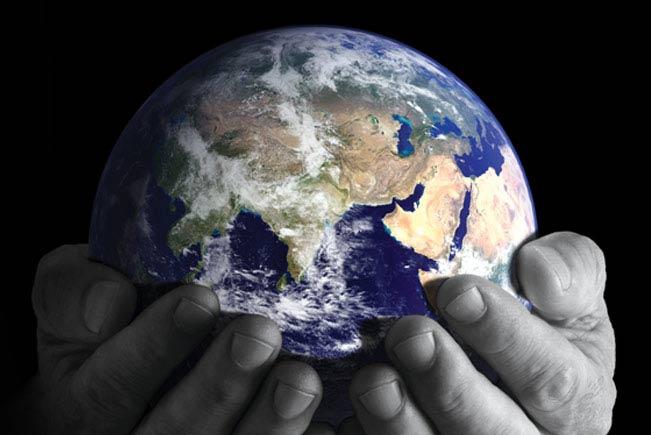BY STEVE PARKS
The 50th anniversary of Earth Day on April 22 figured to spark a global outpouring of humanity taking to the streets to demand immediate and even radical action against the existential threat of climate change on life as we know it.
But a pandemic got in the way. So, that’s not going to happen, although we will see a virtual Earth Day across the digital world.
We’re told by authorities to listen to medical science and alter our lives fundamentally by staying home from work, from school and from every activity involving people who don’t live at home with us. Americans with any common sense, most of us, thankfully, are following those recommendations.
Science also tells us we should pay attention to the climatic effects of human activity—essentially burning fossil fuel—by taking profound steps to curb our collective carbon footprint. Staying on our current over-consumptive path inevitably would prove even more globally suicidal than ignoring the dangers of the COVID-19 pandemic.
Ironically, the pandemic and worldwide response has resulted in a temporary holiday from the atmospheric march toward carbon suffocation. Skies are clearer today over Los Angeles than they’ve been since long before smog first became a Southern California health threat in the 1940s. Commuting time by car from Long Island to Manhattan is cut in half with no need to resort to HOV lanes. And weekend Bay Bridge traffic, even as spring warms up, say, sometime after April 22, will likely be delay free.
This, of course, is not a sustainable circumstance. Nor does anyone want it to be. But we could achieve, if not free-flowing freeways, air quality similar to the current virus-imposed aberration by switching en masse to electric vehicles. And that’s just one step we could take. I’m sure many of the millions who would’ve been attending in-person Earth Day events have more ideas about how to keep our planet habitable for human beings.
It’s easy to feel discouraged in the face of a presidential administration intent on making air and water dirtier by ordering regulatory freedom for corporations to poison and pollute. But Earth Day isn’t just an excuse for “tree-huggers,” as pollution apologists once labeled friends of the environment, to shout slogans and brandish pickets. The first Earth Day started a movement that led to passage of such landmark laws in the United States as the Clean Air, Clean Water and Endangered Species acts. All those are now under threat.
“Despite amazing success and decades of environmental progress, we find ourselves facing an even more dire, almost existential set of global challenges, from loss of biodiversity to climate change to plastic pollution that call for action at all levels of government,” says Denis Hayes, organizer of the first Earth Day in 1970.
Among the seminal influences that led to the first Earth Day and, in the same year, creation of the Cabinet-level Environmental Protection Agency by the Nixon administration, was the 1962 publication of “Silent Spring” by Rachel Carson. Documenting the adverse environmental impact of indiscriminate use of pesticides, the book inspired public pressure resulting in the ban of DDT for agricultural purposes. While “Silent Spring” was firmly based on science, it was most popularly known for its opening chapter, which Carson called “a fable for tomorrow.” A composite of true stories, the “fable” illustrated deleterious, sometimes deadly effects of DDT on wildlife, birds, bees, farm animals, pets and humans. It envisioned a spring with no birds to sing and, without bees to pollinate, no flowers to bloom.
Carson’s book also advocated reforms within democratic governments to encourage citizens, individually or in groups, to question what those in power permit others to inject into our environment. She didn’t live to see the far-reaching effects of “Silent Spring.” Carson died of breast cancer in Silver Spring, Md., two years after her book was published.
Now, on the eve of Earth Day’s 50th anniversary, Kathleen Rogers, president of Earth Day Network, acknowledges, “Progress has slowed, climate change impacts grow and our adversaries become better financed. We find ourselves today in a world facing threats that demand a unified global response. For 2020, we will build a new generation of environmental activists, engaging millions of people worldwide.”
By sheer coincidence, Article 28 of the Paris Agreement on climate change, signed by nearly every nation on Earth (197), the earliest effective date for U.S. withdrawal, announced by President Donald Trump, is the day after the U.S. presidential election. American voters can, for all practical purposes, nullify Trump’s order on Nov. 3.
Meanwhile, you can participate in the first-ever virtual Earth Day here.
Steve Parks is a retired journalist now living in Easton.



Write a Letter to the Editor on this Article
We encourage readers to offer their point of view on this article by submitting the following form. Editing is sometimes necessary and is done at the discretion of the editorial staff.